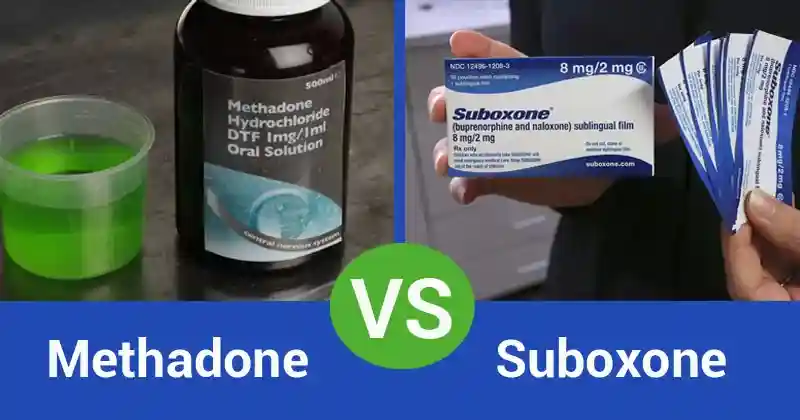
Living with an addict is challenging and emotionally draining. It affects your daily life with an addict, causing stress, anxiety, and constant worry. This guide will help you recognize addiction signs, set boundaries, and find support for both you and your loved one.
Discover practical strategies to navigate this difficult journey and take care of yourself in the process.
Key Takeaways
- Spotting addiction early is crucial—look for behavioral, physical, and emotional signs.
- Setting and enforcing healthy boundaries helps everyone involved focus on well-being and recovery.
- Self-care is essential for caregivers; prioritize your own health to better support your loved one.
Recognizing the Signs of Addiction in Your Loved One
Recognizing addiction in a loved one can be difficult, especially since alcohol addiction often develops gradually and can initially manifest in subtle ways. Addiction is a chronic condition characterized by compulsive substance seeking despite harmful consequences.
The American Society of Addiction Medicine classifies addiction as a chronic brain disorder. This classification highlights the seriousness of addiction as a medical condition.
The most severe form of substance abuse is known as addiction, and it can hijack decision-making processes and alter chemical balances in the brain.
Identifying addiction involves looking for various signs, including:
- Behavioral changes: secrecy, lying, mood swings, and withdrawal from old hobbies
- Physical signs: weight loss, poor hygiene, and unusual sleep patterns
- Emotional red flags: increased anxiety, depression, and irritability
Behavioral Changes
Behavioral changes are significant indicators of substance use disorders. When someone starts to stop abusing drugs, their behavior often changes drastically. They may become secretive, lie about their activities, and exhibit mood swings.
Withdrawal from hobbies and responsibilities is also common, as the substance becomes their primary focus.
These changes can be detrimental to personal relationships and lead to a cascade of additional problems. Friends and family might notice a lack of interest in activities that were once important to the person. Recognizing these signs early can prompt timely intervention and support.
Physical Health Indicators
Physical health indicators are another crucial aspect of recognizing addiction. Common signs include significant weight loss, poor hygiene, and unusual sleep patterns. These changes often result from the addict’s neglect of self-care and prioritization of substance use over their well-being.
Being vigilant about these physical signs is essential. Observing these indicators can help in identifying potential addiction and prompting timely intervention, which is crucial for the health and recovery of the individual facing addiction.
Emotional Red Flags
Living with an addict can lead to heightened emotional symptoms due to the stress and uncertainty of the situation. Common emotional symptoms include feelings of anxiety, which manifest as persistent worry or fear regarding the addict’s behavior.
Depression may also occur, characterized by feelings of hopelessness and sadness, making it difficult to cope with daily life.
Irritability is another frequent emotional response, where one may feel more agitated or frustrated than usual due to the ongoing challenges. These emotional symptoms can significantly affect personal relationships and overall quality of life, necessitating attention and support.
Find Hope and Healing: Call Us Now!
Take the first step towards a brighter future! If you or a loved one is seeking support for substance abuse, we are here to help. Call us today and let our dedicated team guide you to the right treatment options. Your path to recovery starts now!
- Connect with an expert addiction specialist 24/7/365
- Learn about treatment costs
- Arrange fast access to a treatment program
Request a Call
OR
Make a Call
The Impact of Living with an Addict

The impact of living with an addict extends far beyond the individual struggling with addiction; it profoundly affects the entire family. Families often experience significant emotional turmoil, including fear, sadness, and grief.
Caregivers frequently struggle with their own emotional and mental health issues while supporting someone with addiction.
Daily life can become overwhelmingly consumed by the problems associated with addiction, leading to stress and hopelessness. Family members might feel uncertain about their loved one’s behavior and experience a constant state of worry.
Understanding these impacts can help in developing coping strategies and seeking appropriate support.
Emotional Strain
Family members frequently deal with chronic anxiety due to the unpredictable nature of an addict’s behavior. Living with an addict can leave family members feeling powerless and frustrated. Common feelings experienced by family members include guilt, shame, anger, fear, and frustration.
Engaging in enjoyable activities can significantly boost personal well-being while caring for someone with addiction. Professional counseling offers a safe environment where family members can express their feelings and gain coping skills to improve their own life.
Therapy can enhance the emotional resilience of caregivers, helping them manage the challenges of supporting someone with addiction.
Financial Burden
The financial strain from addiction can result from lost income and the costs of treatment and legal issues. Families may face expensive drug use, rehab costs, and legal issues due to a loved one’s drug addiction.
This financial burden can add another layer of stress, making it essential to seek financial advice and support when managing these challenges.
Social Isolation
Social networks often shrink as families withdraw from friends to avoid explaining the addict’s behavior. Living with an addict can lead to social withdrawal, significantly affecting relationships with friends and family. This isolation can exacerbate feelings of loneliness and make it harder to seek help and support.
Addressing social isolation is crucial to support emotional well-being and foster healthier relationships. Engaging with support groups or seeking counseling can provide a sense of community and shared understanding during these difficult times.
Setting Boundaries for a Healthier Environment

Establishing healthy boundaries is crucial for maintaining respect and support in relationships affected by addiction. Boundaries allow individuals to communicate their needs and values, fostering healthier relationships.
Setting healthy boundaries can protect sobriety and create a safer environment during recovery.
These boundaries are not just for the addicted person but also for those living with them. It helps in maintaining a balance where support does not turn into enabling behavior, and everyone involved can focus on recovery and well-being.
Defining Healthy Boundaries
Using specific examples of concerning behavior can help the individual recognize issues they may not be aware of. Starting discussions with empathy can help the loved one feel safe and open to dialogue about their addiction. Communicating genuine care is vital to foster openness and reduce defensiveness.
Active listening reinforces that the loved one’s feelings and experiences are valid and important. This approach creates a supportive environment where the loved one feels valued and understood, which is essential for effective communication and setting boundaries.
Enforcing Boundaries
Setting and enforcing boundaries is essential for your mental and emotional well-being when living with an addict. Develop strategies such as clear communication and being consistent in enforcing the established limits to maintain boundaries without guilt.
Always prioritize your well-being, as effective boundary-setting helps protect your mental health and supports the recovery journey. This involves being firm yet compassionate, ensuring that boundaries are respected and adhered to.
Avoiding Enabling Behaviors
Enabling an addict refers to maintaining addiction by preventing consequences. Common unhealthy behaviors families adopt when dealing with a loved one’s addiction include keeping secrets, finding scapegoats, preoccupation, denial, and blaming.
These behaviors, although well-intentioned, can hinder the recovery process.
Actions perceived as helpful may actually enable addiction. It’s important to distinguish between being supportive and enabling addictive behavior. This distinction helps in promoting healthier ways of dealing with the challenges posed by addiction.
Find Hope and Healing: Call Us Now!
Take the first step towards a brighter future! If you or a loved one is seeking support for substance abuse, we are here to help. Call us today and let our dedicated team guide you to the right treatment options. Your path to recovery starts now!
- Connect with an expert addiction specialist 24/7/365
- Learn about treatment costs
- Arrange fast access to a treatment program
Request a Call
OR
Make a Call
Effective Communication Strategies
Beginning the conversation about addiction can potentially save a life. Provide your loved one with support and encouragement. Share your advice and unconditional love during their time of need.
However, it’s important to remember that you cannot make an addict change their behavior; they must choose to seek help themselves.
Effective communication involves choosing the right time, expressing concern compassionately, and practicing active listening. These strategies can create a supportive environment where the loved one feels understood and valued, which is crucial for encouraging them to seek help.
Choosing the Right Time
The right time to talk to someone about addiction is when both are calm, sober, and free of distractions. Conversations about addiction should occur in a non-disruptive environment to facilitate open communication.
Keep expectations low to avoid disappointment; not every conversation will lead to immediate change.
Expressing Concern Compassionately
Come from a place of compassion and understanding. Use open-ended questions and express your concerns gently to create a safe space for dialogue. Be prepared for denial as a common response when discussing addiction issues.
By expressing concern compassionately, you can foster a connection that encourages your loved one to open up about their struggles. This approach helps in building trust and promoting a supportive environment for recovery.
Active Listening
Active listening is crucial in supporting a loved one with addiction, as it fosters trust and understanding. When individuals feel heard, they are more likely to open up about their struggles. To listen actively, maintain eye contact and give your complete attention to your loved one.
Reflecting back what your loved one says can validate their feelings and encourage deeper conversation. By practicing active listening, you can create a safe space that may lead to positive changes in their behavior.
Encouraging Professional Help

It is important to recognize the signs of addiction early. Seeking help promptly can make a significant difference. Only about 10.3% of individuals with substance use disorders seek addiction treatment, emphasizing the need for timely help.
A professional assessment is essential for determining the necessary treatment for an addiction.
Interventions can help an individual realize they need treatment for their addiction. Getting an addict into treatment is a constructive way to help them on their recovery journey. Professional treatment is important due to the challenges of withdrawal symptoms and the need for medical guidance.
Exploring Treatment Options
A variety of addiction treatment centers programs are available. Addiction treatment can occur in various settings, including homes, outpatient facilities, and residential rehab centers. Professional centers provide medically supervised detox to manage withdrawal symptoms safely.
Virtual therapy options are now available, making it easier for caregivers to seek professional help. Exploring these treatment options can help in finding the most suitable program for your loved one.
Addressing Co-occurring Disorders
Approximately 8.9 million people in the U.S. have co-occurring disorders, which is a significant health concern. To achieve long-term recovery, it is important for individuals to address both their addiction and mental health issues simultaneously, as well as any underlying mental disorders.
Effective treatment of co-occurring disorders requires collaboration among medical doctors, psychiatrists, psychologists, and counselors.
Integrated treatment is essential for supporting individuals with co-occurring disorders, as it addresses both addiction and mental health needs. This holistic approach ensures that all underlying issues are treated, increasing the chances of a successful recovery.
Planning for Withdrawal Symptoms
Medical monitoring is required when withdrawing from heavy substance use. Signs of withdrawal and patterns of reuse can indicate withdrawal from substances. Proper planning for withdrawal symptoms, including medical supervision, can help manage these symptoms safely and effectively.
Taking Care of Yourself
Families of addicts often face emotional distress, leading to intense feelings like fear and frustration. Living with an addict can cause significant emotional tolls including stress, anxiety, and feelings of helplessness.
It is crucial for caregivers to prioritize their own physical well-being to manage the stress of supporting an addict.
Caring for yourself is crucial when living with an addict. Your well-being should always be a top priority. Making yourself a priority is essential when dealing with a loved one’s addiction.
Neglecting self-care can lead to health issues due to constant worry. Engaging in self-care activities is crucial for emotional and physical recovery.
Prioritizing Self-Care
The ultimate responsibility when dealing with a loved one’s addiction is caring for your own health and welfare. Pursuing activities and relationships that bring joy is a strategy for maintaining personal well-being while living with someone who is addicted.
Eating right, exercising, and sleeping well are recommended ways to manage stress.
Acceptance helps caregivers focus on what they can control and reduces self-blame for their loved one’s addiction. Practicing acceptance can be a useful strategy in coping with a loved one’s addiction.
Temporary separation from the addicted person can provide necessary space for self-reflection and healing.
Seeking Support Groups
Support groups can provide emotional relief and practical advice for those impacted by a loved one’s addiction. Joining a peer support group can create a sense of community and shared understanding among caregivers.
These groups offer a safe space to share experiences and learn from others facing similar challenges.
Professional Counseling
Family members often experience significant emotional strain due to their loved one’s addiction. Joining support groups can be beneficial as it provides a community of individuals who share similar experiences and understanding.
Implementing self-care techniques such as meditation, exercise, and maintaining hobbies can help manage stress and maintain well-being.
Professional counseling offers a structured environment to explore feelings, develop coping strategies, and receive support. Seeking professional help can be a crucial step in managing the emotional toll of living with an addict.
Find Hope and Healing: Call Us Now!
Take the first step towards a brighter future! If you or a loved one is seeking support for substance abuse, we are here to help. Call us today and let our dedicated team guide you to the right treatment options. Your path to recovery starts now!
- Connect with an expert addiction specialist 24/7/365
- Learn about treatment costs
- Arrange fast access to a treatment program
Request a Call
OR
Make a Call
When Tough Decisions Are Necessary
Assess the risks and benefits of continuing to live with an addict by considering how their behavior impacts your emotional and physical well-being. Consider temporary or permanent separation if the living situation jeopardizes your mental health or safety.
Take into account potential legal issues and ensure that your personal safety is not compromised.
Making tough decisions often involves evaluating your situation, considering separation, and understanding legal and safety concerns. These decisions are incredibly difficult but necessary for your well-being and safety.
Evaluating Your Situation
Evaluate whether to continue living together or consider separation. The addict’s awareness and willingness to seek help can complicate the situation.
Friends or family may experience emotions of tiredness and frustration due to their loved one’s substance use. Understanding the addict’s behavior patterns can help clarify your own choices.
Separation can provide necessary space to evaluate the health of the relationship. This space can offer a new perspective and help in making informed decisions about the future.
Considering Separation
If the addict refuses help or is not committed to sobriety, it might prompt you to consider leaving. You deserve better and shouldn’t hit rock bottom with them, which justifies leaving an addict. If your loved one is not interested in seeking help, it may be time to reconsider your position.
You could either remove yourself from the situation or ask them to leave.
Considering separation is a difficult but often necessary step to protect your well-being. Setting healthy boundaries and making decisions based on your safety and mental health is paramount.
Legal and Safety Concerns
Being involved with an addict may expose you to legal risks, such as being implicated in drug-related activities. It’s important to understand the legal consequences that addiction can bring, like child custody issues or criminal charges.
Ensure you have a safety plan in place in case your loved one’s behavior becomes erratic or aggressive.
Navigating Relapse

Relapse is a common part of the recovery process and should not be viewed as a failure. Support your loved one during their relapse by encouraging open dialogue, while avoiding behaviors that enable their addiction.
After a relapse, work with your loved one to develop a structured recovery plan that includes setting realistic goals and identifying potential triggers. Understanding relapse, supporting during relapse, and planning for recovery are essential components of navigating this challenging phase.
These strategies can help your loved one get back on track and continue their journey towards sobriety.
Understanding Relapse
Relapse is defined as returning to substance use after a period of abstinence, distinguishing it from a brief lapse or slip. Relapse is often viewed as part of the recovery journey rather than a failure.
Experiencing a relapse is common, with about half of individuals recovering from substance use disorders facing it at some point.
High-risk situations and poor coping responses are key factors that can trigger the relapse process. Relapse can serve as an opportunity to reassess and improve an individual’s treatment strategy. Understanding these factors can help in creating a more effective plan for recovery.
Supporting During Relapse
Relapse is a common part of the recovery journey and should be recognized as an opportunity for learning rather than a failure. Avoid enabling behaviors, such as providing financial support or making excuses for the addict, to maintain a healthy support system.
A structured recovery plan can outline steps to take following a relapse, including seeking professional help and addressing triggers.
Planning for Recovery
Relapse typically progresses through three stages: emotional, mental, and physical, with emotional relapse often being the first sign. The process of relapse can be broken down into several stages, including emotional, mental, and physical relapse.
Understanding the stages of relapse helps in creating a proactive plan for recovery and addressing issues as they arise.
A proactive recovery plan should include joining support groups, seeking medical attention, and considering various treatment options. These steps can provide a robust support system and help in managing the challenges of recovery.
Summary on Navigating Life with an Addict: Strategies for 2025
Living with an addict is an arduous journey that requires resilience, patience, and a lot of support.
Recognizing the signs of addiction, understanding its impacts, setting boundaries, communicating effectively, encouraging professional help, taking care of oneself, making tough decisions, and navigating relapse are crucial steps in this journey.
By following these strategies, you can create a healthier and more supportive environment for both yourself and your loved one.
Find Hope and Healing: Call Us Now!
Take the first step towards a brighter future! If you or a loved one is seeking support for substance abuse, we are here to help. Call us today and let our dedicated team guide you to the right treatment options. Your path to recovery starts now!
- Connect with an expert addiction specialist 24/7/365
- Learn about treatment costs
- Arrange fast access to a treatment program
Request a Call
OR
Make a Call
Frequently Asked Question
How can I recognize addiction in my loved one?
You can spot addiction by noticing behavioral changes like secrecy, poor hygiene, mood swings, and heightened anxiety. Keep an eye out for these signs in your loved one.
What are the financial impacts of living with an addict?
Living with an addict can really drain your finances from lost income and the costs of treatment and legal troubles. It’s smart to look for financial guidance to help navigate these challenges.
How can I set healthy boundaries with my addicted loved one?
To set healthy boundaries with your addicted loved one, communicate your needs clearly and stick to the limits you establish. Make sure to prioritize your well-being and seek support when needed.
Why is professional help important in dealing with addiction?
Getting professional help is super important as it gives you the medical support and structured programs needed for recovery, plus it helps deal with any other mental health issues you might be facing. It’s a key step in getting your life back on track!
What should I do if my loved one relapses?
If your loved one relapses, it’s crucial to support them by fostering open communication and steering clear of enabling behaviors.
Help them create a recovery plan that involves professional assistance and addresses any triggers they might be facing.
Our helpline is 100%
free & confidential
If you or someone you care about is struggling with drug or alcohol addiction, we can help you explore your recovery options. Don’t face this challenge alone—seek support from us.
Programs
Resources
Will my insurance
cover addiction
treatment?
We're ready to help
Find the best
drug or alcohol treatment
center
Are you or a loved one struggling with addiction? Call today to speak to a treatment expert.













